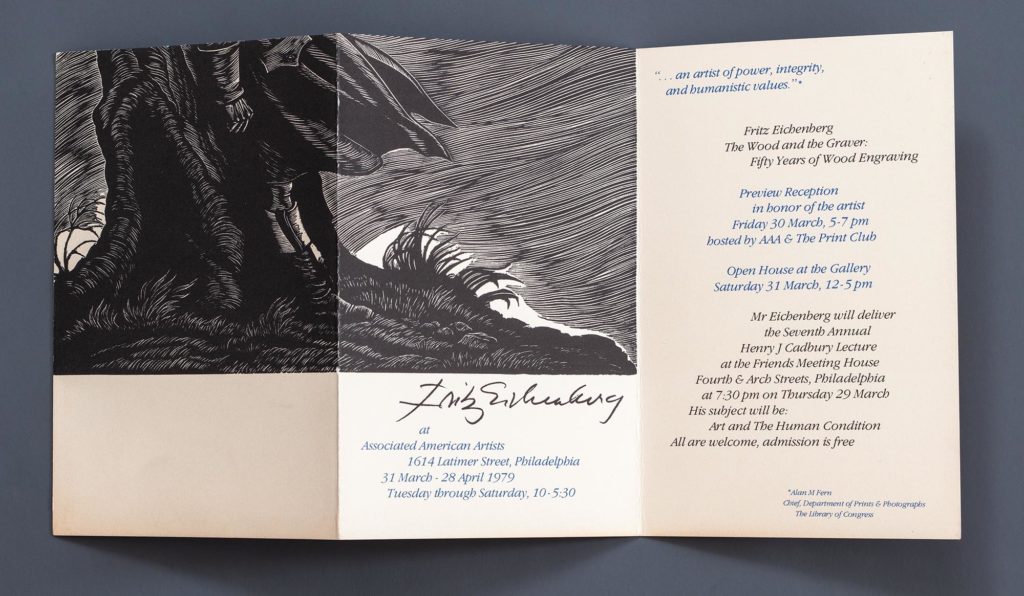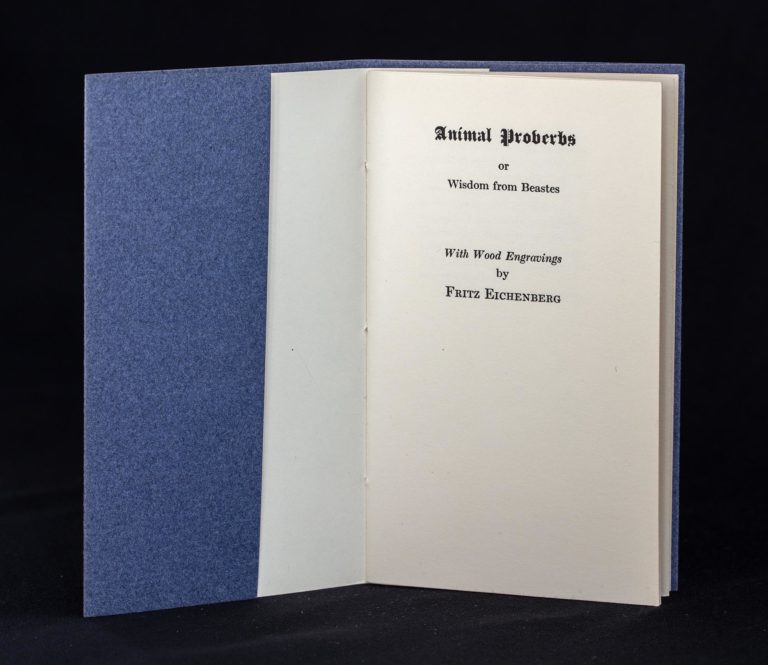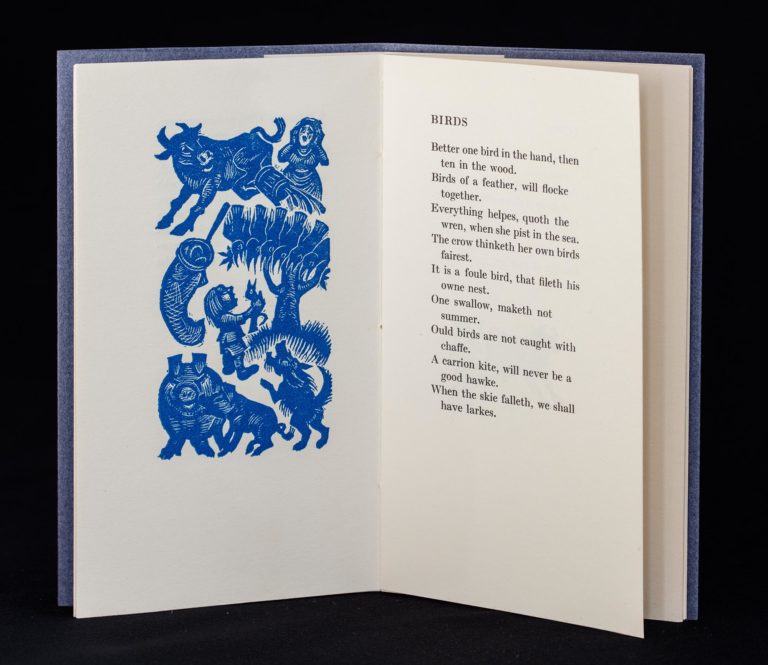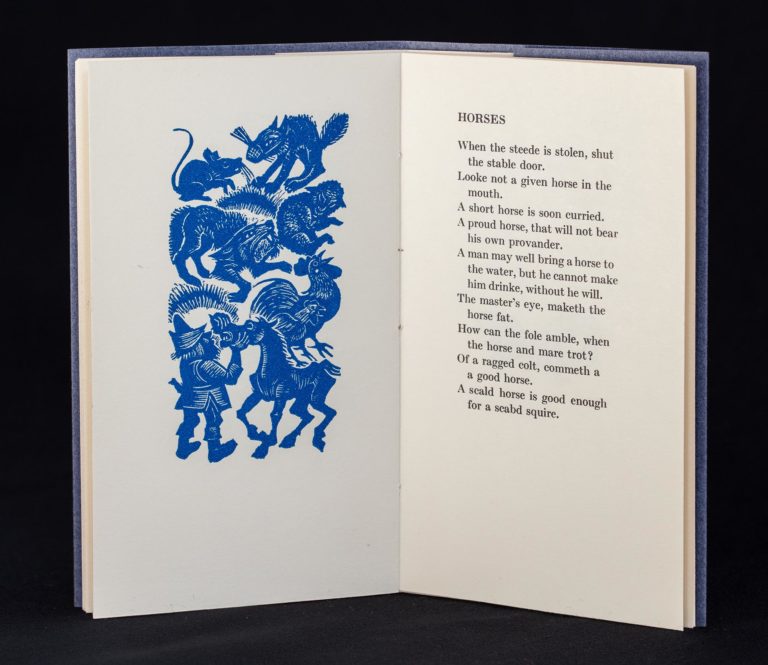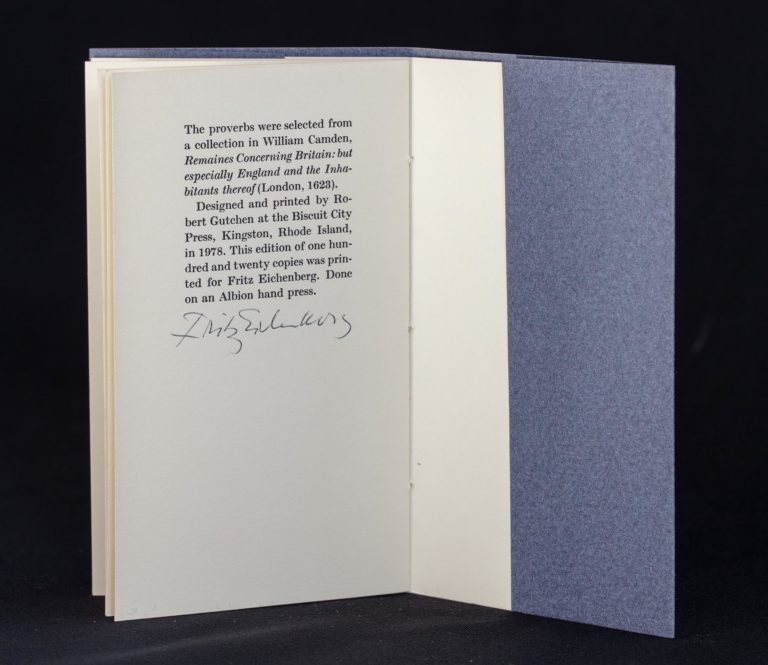Fritz Eichenberg, 1901–1990, illustrator, word engraver, teacher, social activist.
Antonie Eichenberg, 1924–1995, graphic artist, book designer.
As a young teenager, Fritz Eichenberg endured the privations of World War I in Cologne, where he was born. He knew even then that he wanted to express his social concerns through caricature and art. After an apprenticeship at a print shop, where he learned lithography, he attended the Academy of Graphic Arts in Leipzig, studying with Hugo Steiner-Prag, an prominent book illustrator of the era.
Eichenberg lived and worked in Berlin for 10 years, where he did satirical illustrations for newspapers and magazines. He and his family emigrated to the United State, settling in New York City. He taught at the New School for Social Research and Pratt Institute while continuing his prolific career as a book illustrator. Best known for his woodcuts of dark psychological literary works, like Tolstoy, Dostoyevsky and the Brontës, he also illustrated childrens’s books. He joined the Religious Society of Friends in 1940 and met Dorothy Day at a conference in 1949. He deeply admired her work and frequently contributed illustrations to The Catholic Worker. In 1966, he moved to Rhode Island and chaired the the art department at the University of Rhode Island at Kingston.
Antonie Schulze-Forster Eichenberg was born in Berlin. She designed several of her husband’s books and was known for her graphic posters.
